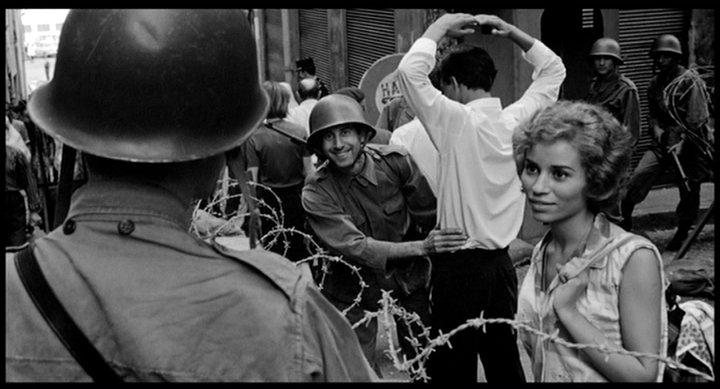I have to admit, I got tired of the film about 10 minutes in. I thought it was going to be just like any other movie: the plot continues for 30 minutes then the big climax happens and the rest of the film is directed towards treating the wound created at that climax. As I waited for the big moment, I realized this movie was more concerned with the daily lives of the neighborhood. The film wasn’t only concerned with the lives of these people, but the peace that they lived in. There was no significant violence, just a little bit of verbal arguing. I loved the presence of Sal’s pizzeria because, at least for the majority of the film, whites and blacks could live together. Anyway, back to my point. About an hour or so into the movie, that’s when the climax occurred. I was shocked to realize that the film concluded pretty abruptly. There was no healing or revenge. It was life. I think the movie was a “day in the life.” There was no time to get revenge or bereave over the death of a member of the community. Spike Lee depicted the life of blacks in the neighborhood and left the audience with questions: “What do we do? How do we fix this? Is this somewhat my fault for being so naive? Ignorant? Passive?” Nicely done, Spike.

I completely agree with you, I think that the movie did end pretty abruptly. And I think that is just what makes the film so brilliant. There really is no resolution of the problem at the end of the movie. Like you said, this movie isn’t about dealing with the problems caused by the climax of the film. It is about addressing the problems that actually exist outside of the film and greatly impact our society. I think this movie was more of a way to attract attention to the pressing matters at hand, whether it be in 1989 or today. The fact that it left matters unresolved and left the audience with many questions made it that much more relatable and eye-opening.